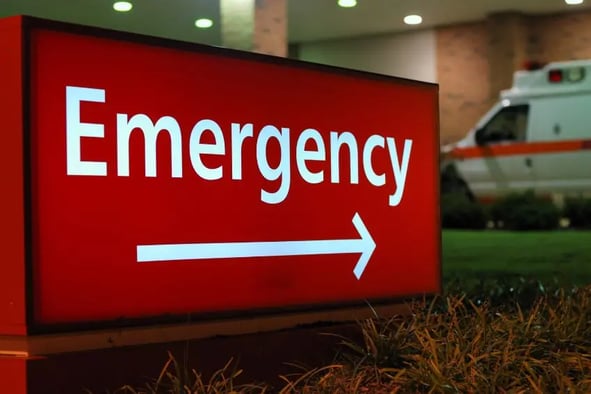
Be prepared for the unexpected by reserving money specifically for an emergency fund.
The Importance of an Emergency Fund
When people think of financial planning, the first things to come to mind tend to be long-range goals, such as home ownership, retirement, and their children’s college education. It is important to remember, however, that you need to cover your short-range needs as well. An emergency fund is critical to weathering the rough times that we all must endure in one form or another. Consider what you would need if you encountered sudden medical expenses, job loss, or major repairs to your home or vehicle.
The standard advice is to have emergency funds available to cover 3-6 months worth of expenses. How much you need to save varies based on your individual circumstances, but even if you can’t quite meet your goal, having just a few hundred or a few thousand dollars stashed away can be a great relief when unexpected costs arise.
How Much Should You Reserve for Emergencies?
Several factors influence how much money you should really have reserved for emergency expenses. If, for example, you are married with a working spouse, if your job is stable, or if you have alternate sources of income, your need may be less. If, on the other hand, your company is on the verge of announcing layoffs, and you don’t have income outside of your own paycheck, your need for emergency backup funds is greater.
The need for emergency savings is also higher for workers nearing retirement. Healthcare costs have been rising, and the average length of unemployment now lasts about 60 weeks for workers 55 and older. http://www.forbes.com/sites/nextavenue/2013/08/28/women-need-to-get-serious-about-emergency-savings/. In this age bracket, it may be wise to reserve at least a year’s worth of expenses.
Emergency Savings vs. Long-Term Savings
To protect you in case of a true "emergency," at least a portion of your funds should be accessible within one business day. Savings accounts and money market accounts are well suited to this purpose. This allows you to keep your money accessible while modest interest.
Although long-term savings is important, be careful not to be too aggressive with funds that will be locked in, such as 401(k) or IRA savings (although a Roth IRA allows greater flexibility if you absolutely need to dip into it). Although maxing out your allowable retirement contributions each month is a great goal, generally speaking, saving back even 12%-25% of that contribution to build short-term savings may be advisable if you otherwise don’t have a comfortable amount set aside. When it comes to long- and short-term savings, you must keep your priorities in balance. Ideally, long-term investing shouldn't come at the expense of emergency planning, and you also want to set aside a portion of your savings to earn money for yourself.
Get Out of Debt!
Not only will reducing or eliminating your debt reduce your monthly, but it will also provide an extra cushion, just in case your emergency savings don’t quite meet your needs when unexpected events arise.
Where Should You Keep Your Emergency Funds?
Although these are some of the most common places to keep emergency funds, many other choices are available. Consult with a professional financial planner to determine the best place for your short-term savings, based on your individual means and needs.
A traditional savings account may be an attractive option for a portion of your emergency fund. Although you will earn next to no interest on the money, you usually will not need to maintain a minimum balance, and all of the money is immediately accessible. This is a great feature when you need money immediately.
A money-market bank account, unlike a money-market mutual fund, is FDIC-insured and often requires lower initial deposits. Because they are insured, they are every bit as safe as a savings account, but you may encounter fees if your balance dips below a minimum level or if you exceed monthly withdrawal limits.
Bank certificates of deposit (CDs) are federally insured and some have higher yields than money-market accounts and high-yield checking accounts. You can invest the funds for as little as three months, and with an initial deposit as low as $250. If you cash it out early, however, you will be hit with fees.
Don’t be caught unprepared for the unexpected. Contact the financial planning professionals at Boelman Shaw Tax & Financial Planning in Des Moines to discuss your emergency planning needs and options.
Tax and accounting services provided through Boelman Shaw & Company, LLC. Advisory services provided through BSC Capital Partners, LLC a state of Iowa registered investment advisor.

